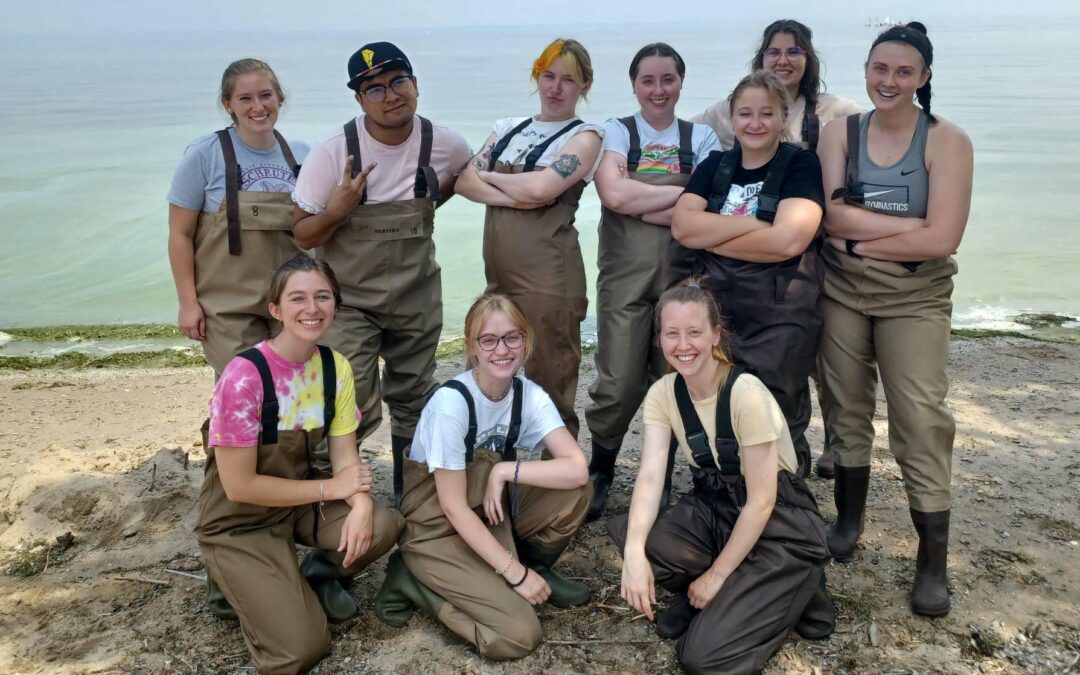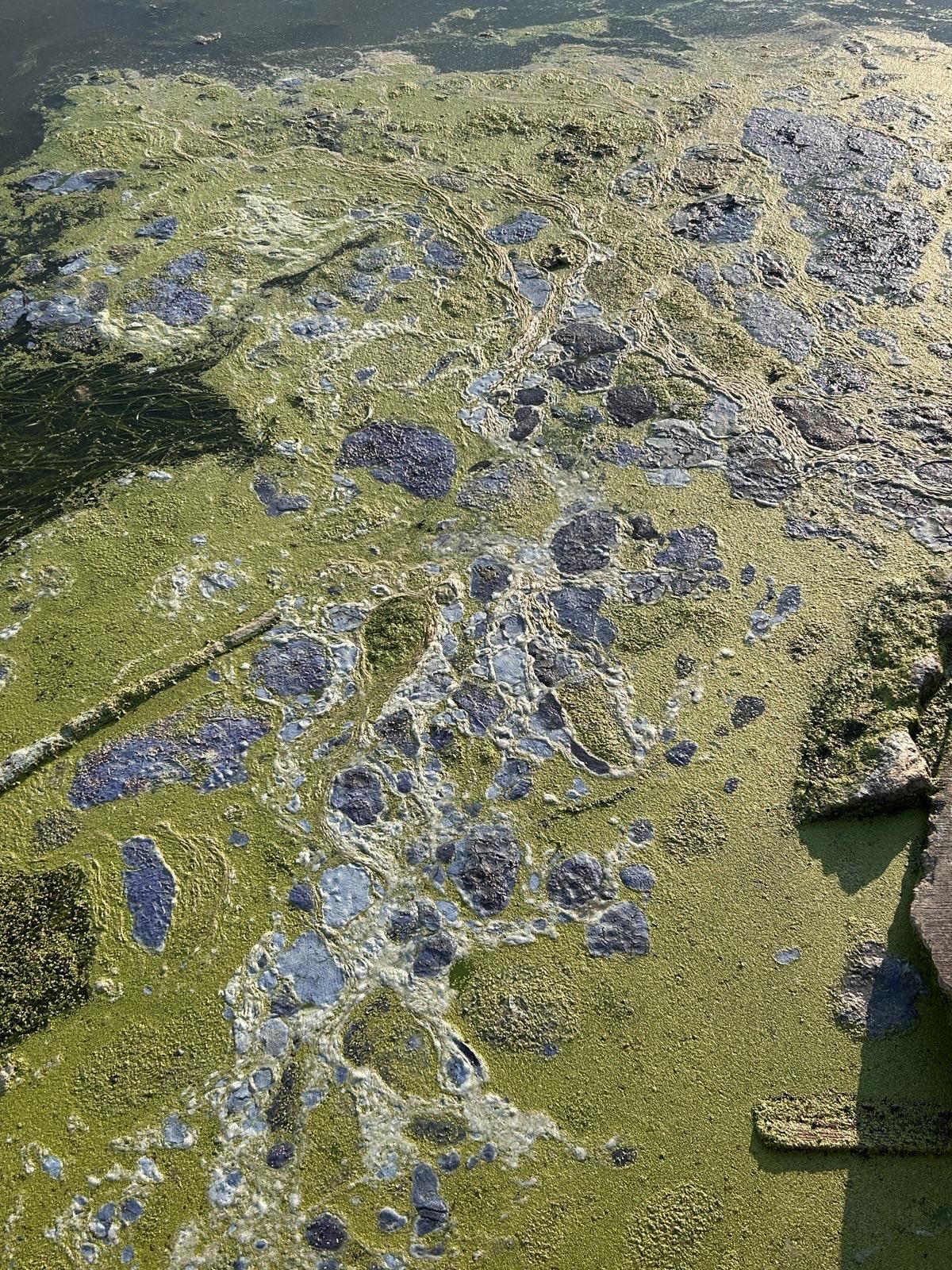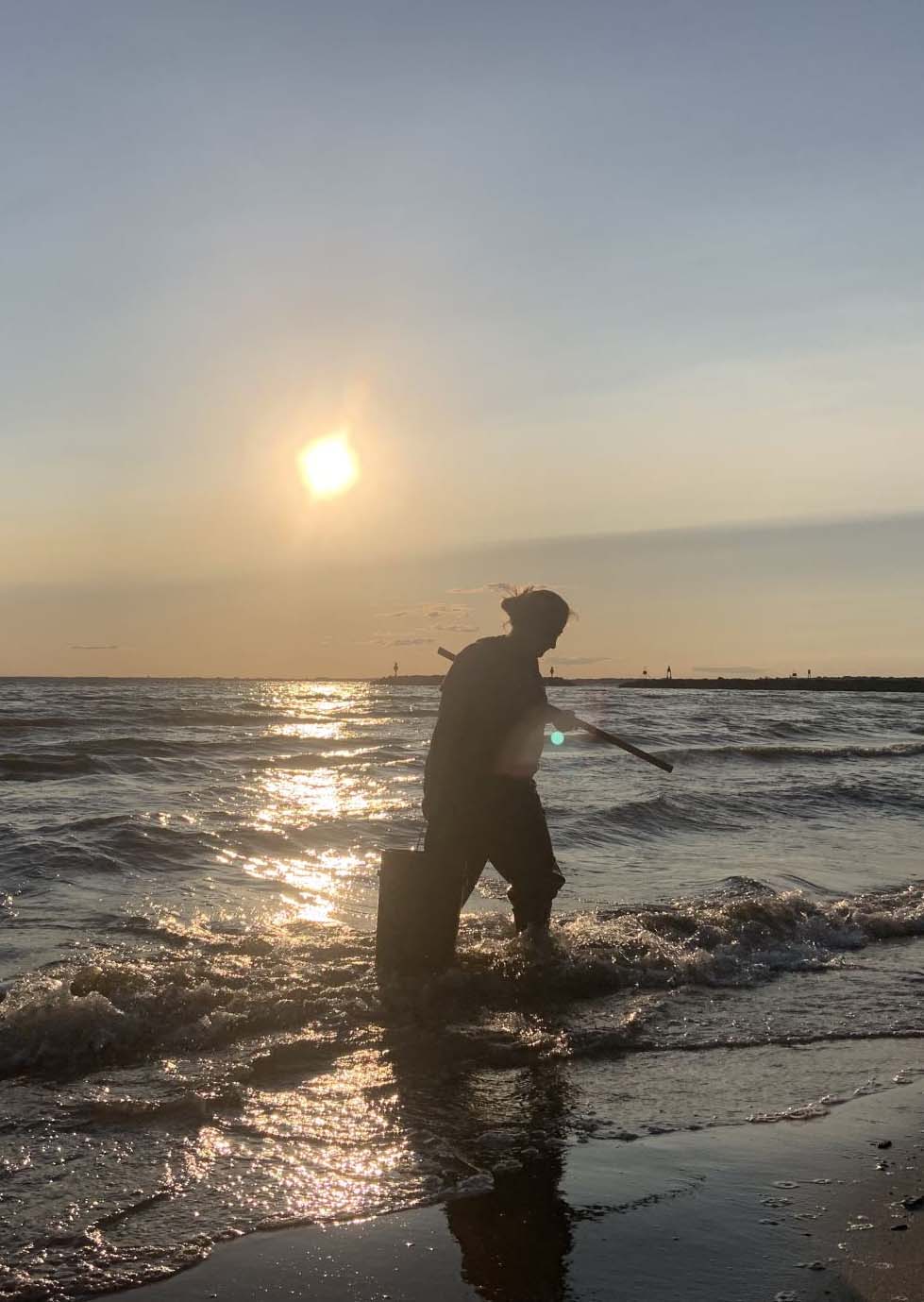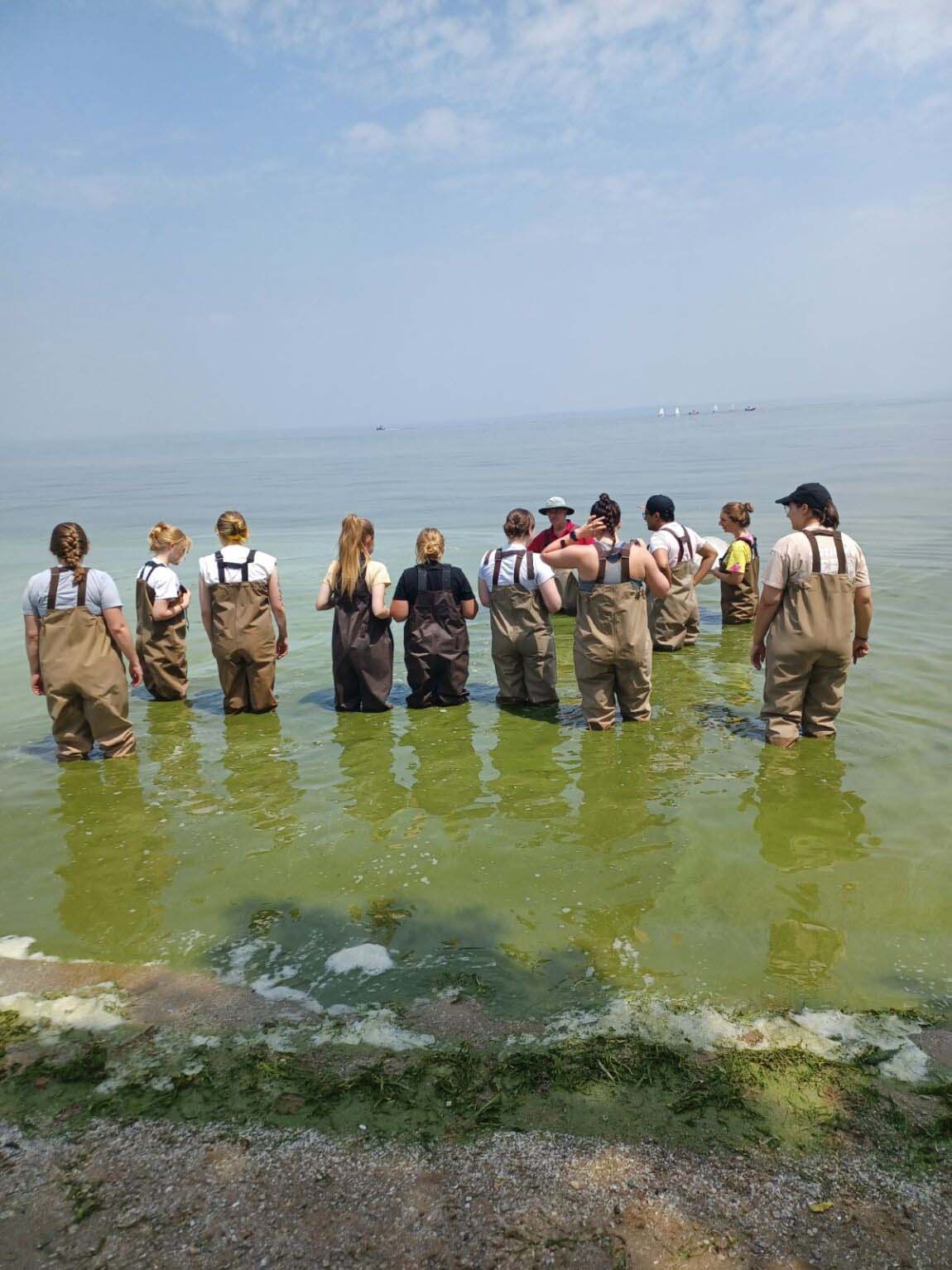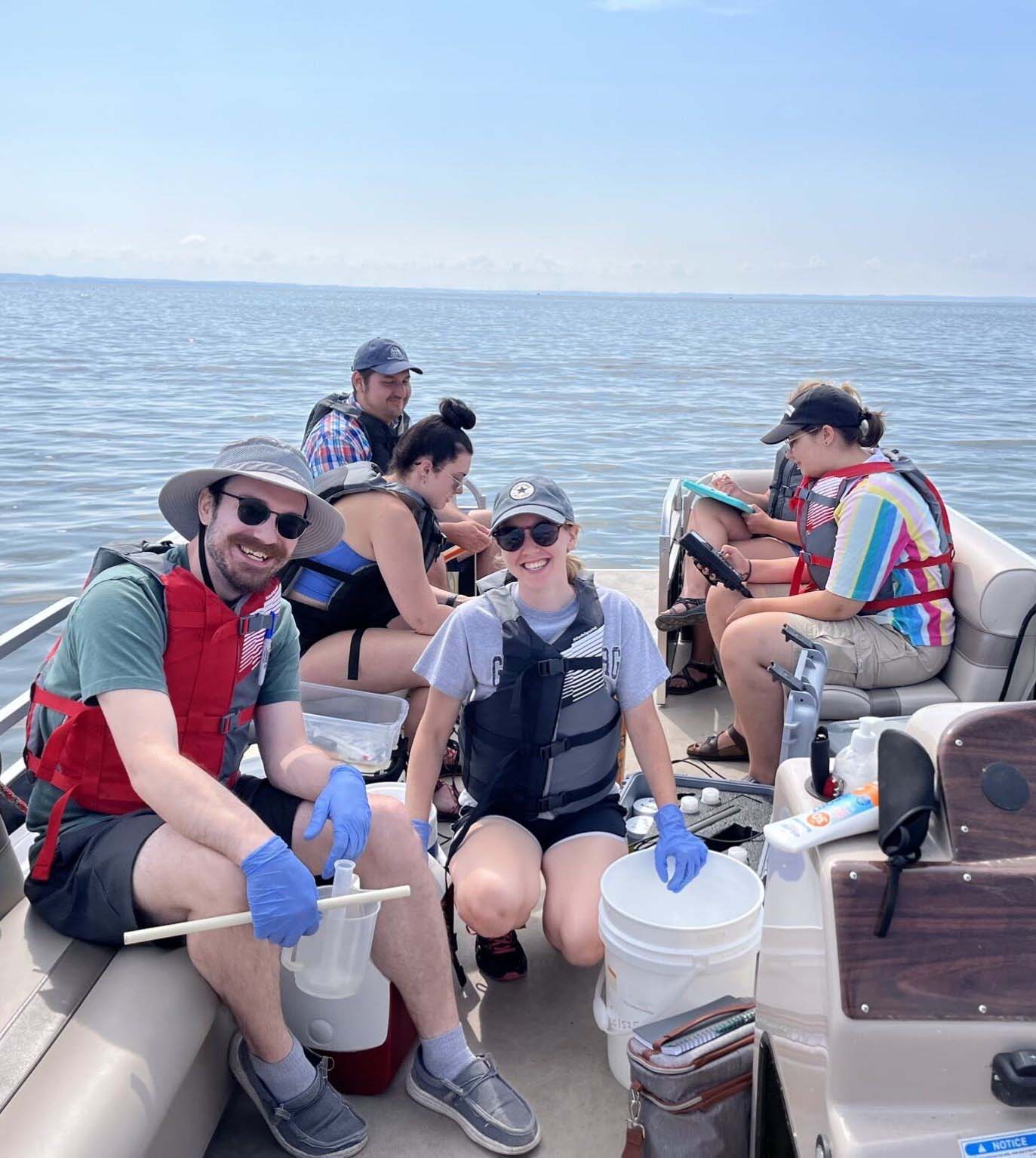Ten student researchers learned how to collect data while discovering the value of a multidisciplinary approach to tackling a serious ecological issue this summer as part of the University of Wisconsin Oshkosh’s Winnebago Pool Lakes Harmful Algal Blooms Project. The endeavor is funded by a $1.6 million National Science Foundation grant.
Learn more from the project leader Stephanie Spehar, the director of UWO’s Sustainable Institute for Regional Transformation, and get a glimpse into how the students are cleaning up and restoring biodiversity to the water system:

